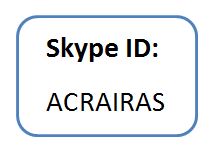Incorporation Guide to follow in Singapore
When you are looking at starting a business in Singapore, you will need to follow some set procedures of making the company legal, through the process of its incorporation. The registration is done through the Accounting and Corporate Regulatory Authority (ACRA) as stipulated in the Singapore Companies Act. You will need to meet the five minimum requirements for your entity to be incorporated, and the requirements are;
- At least 1 shareholder, who can be an individual or a legal corporate entity, whether a Singapore or Foreign company
- 1 resident director, who must be a local Singaporean. If you’re a foreigner, you can get a local nominee director service through a professional firm, such as J Accounting.
- 1 company secretary who should be a Singapore citizen.
- Paid-up capital or share capital that should be not less than $1
- Physical Singapore office address and not a P.O. Box. If you do not have this, you can use the registered office address of a service provider
Requirements for Incorporation Process
The Company Name – You should be clever when choosing this since it will be your brand name, the identity of your firm. You should also include the business activities of your business, known as the SSIC code when incorporating a Singapore private limited company. Make it unique but logical, so that it does not seem similar to the others already in the registry. Also, a tip would be to choose company name that is short and easy to remember.
Description of Activities – Based in the list from Singapore Standard Industrial Classification (SSIC), you will select the right category where your engagement in business fits. Best to pick a primary and secondary business activity.
Shareholding agreement – Like with every other signed agreement, the shareholders agreement that you will need to sign at the time of registration is meant to avert disagreements that may occur in future, and help to solve the disputes. The agreement shows the relationship between all the shareholders, indicates their obligations and rights. This is usually done internally by the company. However, if you need assistance with this, suggest that you find a law firm to assist you with drafting such agreement.
Constitution, previously known as Memorandum and Articles of Association (MAA) – The memorandum basically shows the activities of your business, or other activities and services that is capable of supplying. The Articles of Association on the other hand stipulates rules and regulations that will govern the management of the company. The Singapore Company Registrar has a standard document that is tailored to fit the operations of most businesses. Presently, the name of this document had been referred to the Constitution.
Company Auditor – Within three months after the incorporation of your business, you will need to appoint an auditor in your company if you are not exempted from being audited. Previously, if the number of the shareholders in the company is less than 20, then you need not worry about getting an auditor, the reason is because your entity is eligible for exemption from audit requirements. However, the law no longer looks at this requirement. It had changed, and one of the factor for audit is the annual turnover. If the annual revenue is below S$10 million for the business, or the total assets is less than $10 million, or the number of employees is less than 50, then it meet the threshold for the audit exemption.
Post Company Incorporation guide on documents and information
After the approval from the Singapore Company Registrar, you will receive an email of confirmation. In it, you will find the Unique Entity Number (UEN), which is the standard identifier in the database of businesses in Singapore. After the payment of a fee, you can also get company’s ACRA business profile. The profile has details such as;
- The name of the company
- Unique Company Registration number
- Date of incorporation
- The activities you will engage in
- Physical registered office address
- Paid-up capital in the company
- The details of the directors, shareholders and the secretary
As a guide, here are some other company documents that you may receive after incorporation are:
- Incorporation certificate
- Share certificate
- First board resolution
- Bank account opening resolution
In addition to that, you may also get a company seal and a company stamp to for your Singapore company. If you need help setting up a Singapore company, you may get assistance from professional service provider like J Accounting. Services provided include from time of incorporation all the way till yearly maintenance of the company. Contact J Accounting for more details and information.




